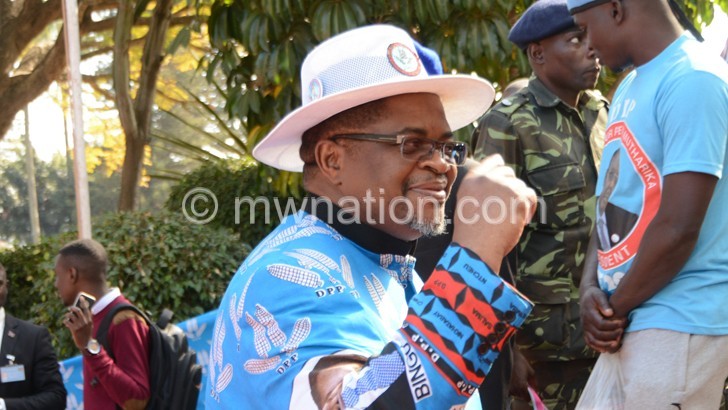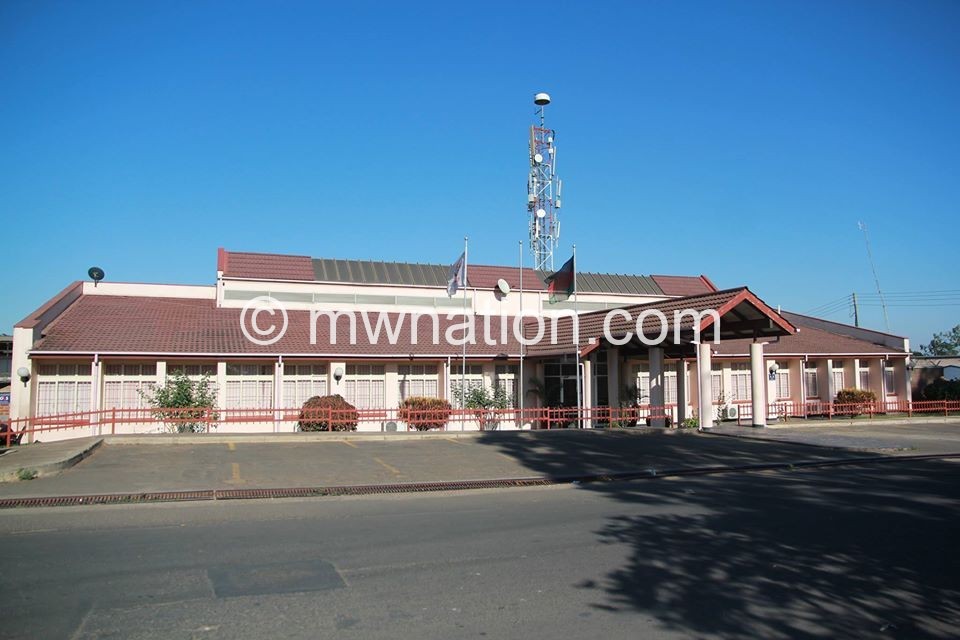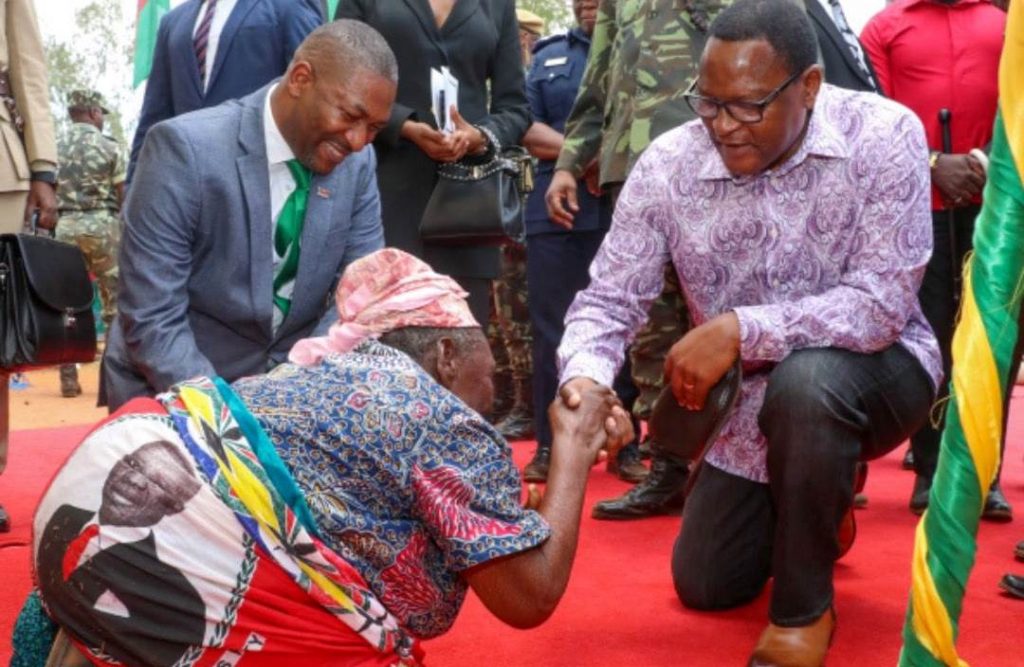Main opposition Democratic Progressive Party (DPP) revised constitution has abolished regional vice-presidents, blocked new members from contesting for positions and barred former members, who dumped it, from returning, Nation on Sunday has gathered.
While praising the abolition of regional vice-presidents, analysts have condemned the party for the other reforms which they say they infringe on the right to association prescribed in the country’s Constitution.
Msaka: The process has been finalised
Said governance commentator Makhumbo Munthali: “Blocking members that have joined the party for less than a year may indeed partly address the nomadic politics.
“However, such a provision may not meet the democratic and human rights test as it may infringe on one’s freedom of political participation.”
The DPP constitution, which is expected to be tabled soon at the party’s convention, as announced by their president Peter Mutharika, has increased the number of regional and constituency delegates to the national conference and created positions of vice and deputy vice presidents.
The revision of the statutes follows the former ruling party’s functional review conducted last year which established that the party needed to reform its objectives, organisation structure and finance mobilisation as it pushes to reclaim its lost glory.
While the current constitution, which was approved in 2018, provides for the positions of four regional vice-presidents, the revised one does not.
Article 11 reads in part: “The National Political Conference (NPC) shall be convened at least once every five years.
“[Section ]12.4 The NPC shall have the following powers and responsibilities…. elect the following positions of the National Governing Council, subject to any screening of candidates by the Elections Board, president, deputy president, second deputy president…”
The functional review report released mid last year pointed out that the regional vice-president positions were creating unhealthy competition.
“The recommendation is to have one vice-president at the national level. The observation is that having four vice-presidents has brought unhealthy competition that distracts the party to focus on tangible issues and coming up with a proper and coherent succession plan,” the report argued.
On delegates to the national conference, the party’s “supreme organ”, the new constitution increases representatives for region from 15 to 18 and that of each constituency from three to five.
However, representation from district committees at the conference has been slashed from 15 per district to five.
Article 7:13 blocks old members’ return.
“Any member who voluntarily leaves the DPP to join another political party or any other organisation whose aims and objectives or whose principles and values contradict the DPP, shall not be allowed to re-join the DPP.”
The party, through the functional review, justified ineligibility of new members vying for positions and this has been adopted in the constitution through article 10:10.
“DPP is one of those parties that are vulnerable to opportunistic political nomads who can dump another party a few days before a DPP National Policy Conference, join DPP within a week, contest for an executive position at the NPC and get it at the expense of loyal and more so competent party members,” the report pointed out.
The revised constitution, therefore, demands that aspirants for NGC position should have been members for three years, regional, district and constituency level positions require aspirants to have been party members for two years, a year and six months, respectively.
Analyst Munthali said some reforms will help to bring order in the party.
“For example, the proposal to abolish regional vice-presidents in my view and instead have a vice president and second vice makes sense as there is some hierarchical order,” he said.
Munthali, however, feared that blocking new members from contesting for positions risks dismissing some potential game changers.
“Likewise, barring people who left the party from returning to the party might risk infringement on people’s freedom of association regardless of the good motive to curb nomadic political behaviour.
“And there might be different reasons where someone leaves a political party and later decides to come back. But maybe the onus should be left to the party’s supporters to decide whether such individuals should be elected in party positions or not if they present themselves for election,” he said.
South Africa based University of the Witwatersrand political analyst and lecturer backed the reforms that abolish regional vice-presidents and dismantle nomadic politics though he also feared they trample on freedom of association.
“I am not sure though about completely barring members who left the party for another. This threatens freedom of association, I think. It would be good if such members are subjected to similar ‘probationary’ periods,” he said.
On new members not being allowed to vie for a position, Jana said: “That condition should have been restricted to those coming from other political parties, not those joining politics for the first time.
“I am saying that because sometimes some of those joining may be coming from civil/public service or private sector or even diaspora and may have been in professional positions where they couldn’t join politics because professionally it’s not allowed for them, yet they can make good leaders.”
Another political analyst Chimwemwe Tsitsi, a lecturer at Malawi University of Business and Applied Sciences, opposed the move to block old members from returning.
“It may be against the constitutional provision of freedom of association, and I think the courts have ruled on a number of occasions that political party membership cannot be denied to someone; if anything, you can just deny such a person a leadership position.
“Secondly, the essence of building and rebuilding a political party lies in the party’s ability to attract back into the party its lost members and not just attracting totally new members, while retaining those that are in the party.
“After all it is inevitable in any political system to have swing voters and swing political party supporters. These are the people that make governments change,” he said.
Mutharika, 82, said he would soon call for the party’s national governing council (NGC) to approve the new changes.
He said: “We have finished fixing the party, there are new rules, a new [party] constitution, new rules governing the party, new rules in electing councilors, MPs [members of Parliament] and leaders in the party from the area committee level to the president.
“We finished this last week and anytime soon before December I will call for the NGC so that we approve this and after that a convention will follow in July 2023.”
In an interview recently, DPP vice-president for the Eastern Region Bright Msaka said the functional review presented all the documents, including the revised constitution, to the executive committee which has been analysing them.
Msaka, who chaired the review team, said there will be final resolutions after the analysis which will be presented to the NGC for adoption.
The post DPP purges positions appeared first on The Nation Online.
 Moni Malawi
Moni Malawi 

